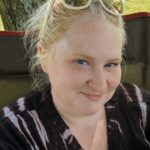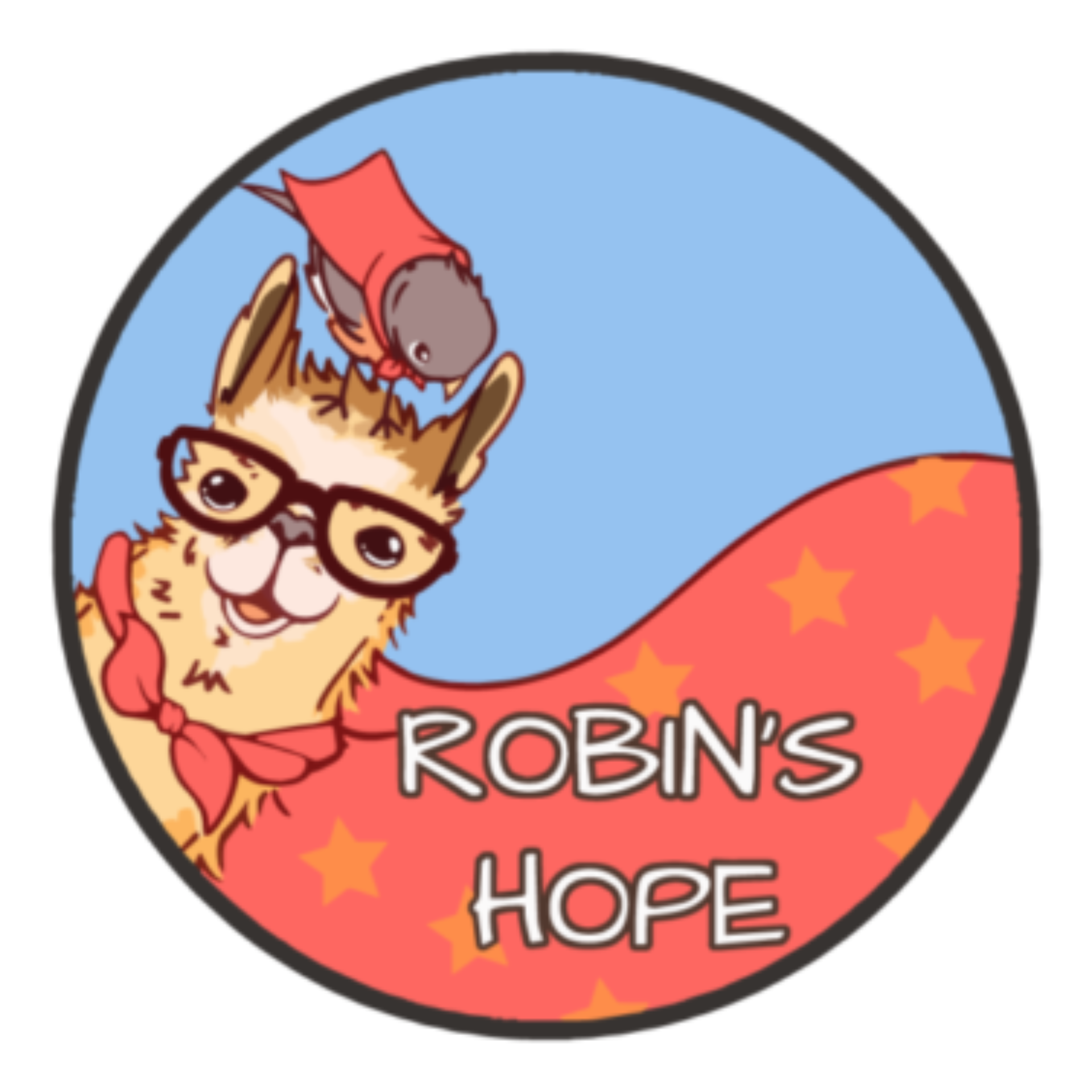Individual Peer Support
Do you need extra support? Robin’s Hope offers free, 45 minute, Individual Peer Support sessions with our Peer Recovery Specialist (PRS) Interns. PRS Interns are not mental health professionals, but they are able to listen, provide resources, advocate, help you set goals, and more! Learn more about Peer Recovery Specialists here!
How to Schedule
Schedule your virtual session by clicking an available time slot in the Individual Peer Support Calendar, and provide your name and email address, and any information you would like to share. The PRS Intern you schedule with will contact you with the Zoom Link for your session by email prior to the start time.
Extra Support
If you decide that you need more than just one session, our PRS Intern will follow a process to set you up with further support! Robin’s Hope also offers a variety of free support groups! Check them out here!
Questions?
Questions? Please contact us: info@robinshope.com or call
Meet Our PRS Interns
Robin’s Hope PRS Interns are working toward becoming certified in Virginia following guidelines set forth by the Virginia Department of Behavioral Health and Developmental Services (DBHDS) after completing the 72 hour DHDBS Peer Recovery Specialist Training. Each PRS Intern and PRS has unique lived experience that helps them support exploration of recovery based services as you navigate the impact of trauma, life events, mental health or substance use disorders.
Choose an Intern
Molly
Michael
Kay
Heather
Choose an Intern
Click each name below to to learn more about each PRS Intern’s lived experience and recovery specialties!
Molly

Name: Molly Overstreet, PRS
Pronouns: she/her
Recovery Specialties: Substance Use Disorder (Opioid), Non-traditional Recovery, MAT, Mental Health: Major Depressive Disorder, Anxiety, Borderline Personality Disorder
Support Groups: Facilitates Mid-Morning Music with Molly and Tuesday Peer Check-In
In Molly’s Words:
I am very goal-oriented! I love to set goals and challenge myself to reach them. If you don’t have a goal in mind, I’m happy to help you come up with one.
I’ve learned that the resources are out there. All it takes is finding the motivation to want to get better. There is no one right way to recover, period. If it’s working for you, then it’s a valid recovery path! Harm reduction is very important to me. Any positive change is the goal!
I chose to become a PRS because I feel empowered when I support others. My favorite thing about being a peer is that I’m not a clinician. I don’t have to stick to the strict boundaries of a therapist or medical professional. I’m allowed and encouraged to share my experience with those I work with, and that can help us find common ground and a good point to start at.
Michael
 Name: Michael James-Deramo, PRS
Name: Michael James-Deramo, PRS
Pronouns: they/them
Recovery Specialties: LGBTQIA+ support, trauma from abuse & neglect, DBT skills and strategies, self-acceptance, advocacy
Support Groups: Facilitates DBT Skills & Strategies
In Michael’s Words: As a queer person, I am experienced with LGBTQIA+ issues. I have also worked to overcome trauma-related to emotional abuse and neglect. My recovery, which I draw from Individual Peer Support, has focused on building self-acceptance, feelings of self-worth, and creating healthy relationships that are built on trust and interdependence rather than codependency and control.
I attempt to focus on moments of perceived failure as an opportunity for curiosity rather than a moment of shame – this is something I continue to work on as an ongoing process. I have been told I’m good at holding space and making people feel heard. I facilitate the DBT Skills and Strategies group and thus will often refer to DBT skills as potential tools in our recovery plan.
I have found it fascinating and empowering to learn about the roots of peer support is mutual aid (in which communities come together to meet needs that the system, government, and institutions fail to properly address.) Community-based support empowers me to see peer support as a way to build the society we want to live in. I’m passionate about work that reduces and eliminates hierarchies, solves problems through the understanding that we share common struggles, and helps us feel less isolated.
By supporting others, I am able to also learn about myself and walk my own recovery path. This building of interdependence and collaborative community support is what inspired me to become a PRS and is why I do this work.
Kay

Name: Kay Pate, RPRS-T
Pronouns: she/her
Recovery Specialties: Substance Use Disorder, Mental Health, PTSD
Support Groups: Facilitates Peer Check-In Mondays & Thursdays
I’m Kay. I am diagnosed with bipolar and suffered from substance use disorder for about 30+ years and I now realize that I was self-medicating to cope with PTSD due to long-term physical abuse suffered throughout my childhood. I have been in remission for 17 years from my mental illness diagnosis through talk-therapy with a licensed professional counselor and maintenance on psychotropic medications. I’ve also been in recovery for 14 years without relying on substances to cope with life.
It’s been a long journey and I want people to know that life can be great and it feels good to feel good. I was tired of living a life that revolved around the use of drugs and alcohol and am proud of who I am today!
Heather
 Name: Heather Pate, RPRS-T
Name: Heather Pate, RPRS-T
Pronouns: she/her
Recovery Specialties: Mental Health, Trauma, and the correlation to Trauma.
In Heather’s Words:
I’m pretty chill with individual peer support. I love getting to know people and yet I’m an introvert. I like to celebrate people. I’m also not afraid to hold accountability and reflect back concepts that I hear from you, offer resources because you aren’t going to get that much from me – the more support, the better. Llamas!
Themes I’ve really recognized in my work and recovery over the years are: empowerment, getting to know oneself, and celebrating every single step. Steps backwards are steps forward. I love the Personal Bill of Rights and embrace the Dignity of Risk – affording the opportunity to fall down and/or step forward. That’s what recovery is all about. This was the moment in my PRS growth that told me I don’t need all the answers. I’m with you on the journey. Sometimes that’s hard to see for ourselves or hard to see for both of us, but I will hold hope until you can.
I believe that recovery and hope is possible for everyone. People don’t need to be changed, they need to be cared for, heard, and inspired with hope as they are and in whatever way that takes them. I only ever share from my perspective and experience and will NOT push that on anyone. I can’t know what it’s like in your shoes until I get to hear it from you.
I’m a friend, daughter, pain patient, therapy client, niece, cousin, supporter, roller coaster rider for wellness (I get to ride with you on the roller coaster, I can’t ride roller coasters anymore, this is better), roommate, cat owner, dog and cat lover, a pokemon game player when I can, trainer, mentor, leader, student to the world, and believer in people.
There were people who were instrumental to my own healing, who were peers or peer recovery specialists. They believed and still believe in me. They afforded me the right to see that I am allowed to accept the Personal Bill of Rights and not think I am an exception to the rule.
What do I love about being a PRS? Llama tell you, light bulb moments when something just clicks. Watching people grow before they see themselves growing.

